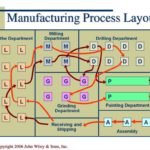Faculty Initiatives on Teaching and Learning (8)
Listed below are some of the teaching initiatives on teaching and learning
1. Dr. P. Chandiran, LIBA
a) Hitting the Middle Stump-An Activity Based Learning Exercise
Course: Managing Operations
Batch: PGDM I year
Game: Process control, Experiments and Improvement in hitting a single stump with a Tennis Ball
Teams: Each team consists of 6 students. All must participate.
Overview
This is a field based activity as a part of the course Managing Operations which helps in learning process improvement and quality control. This is a group activity that involves accurately hitting a single stump at a distance by throwing a ball. The success rate is taken as the score for the team. This is part of the internal evaluation process of the course.
Activity:
Each group consists of five students. Each student needs to throw six balls at the stump and the total number of throws is limited to 30. The scores are based on the number of hits.
b) Supply Chain Beer Game
Course: Supply Chain Management (elective course)
Batch: PGDM II year Operations specialisation
Objective: To demonstrate bullwhip effect in a supply chain and make the students come out with a better supply chain strategy
Teams: Four (each with three students)
Co-ordinators: 3
Overview:
The purpose of playing the beer game is to provide the participants with hands-on experience in dealing with the challenges in managing supply chains. The beer distribution game (or simply, “the Beer Game”) is a role-playing game, which simulates chaos, complexities, and structural problems in the supply chains. Of course, there is no beer in the beer game, and the game does not promote drinking.
c) Process Layout Demo
Course: Managing Operations (MAO)
Year 2019-20
This is an arrangement of processes or departments where similar kind of operations are grouped as departments. This Layout that can handle varied processing requirements Not particularly vulnerable to equipment failures. Equipment used is less costly Possible to use individual incentive plans.
To demonstrate this, we have selected products like Paper aeroplanes and ships. The students are grouped under five departments as
- Cutting
- First level Folding
- Fabrication
- Assembly
- Painting
Each group, start doing the activity as per orders. The orders are of different sizes of Aircrafts and ships with different colour preferences with varying quantity. The material flows from one department to other department as per order and product specification requirement. Sometimes, the customer only wants painting, and sometimes only fabrication. The video is attached with this note.

2. Dr. Agna Fernandez
a) Theatre as a pedagogical tool
Meaning & Outcomes: Theatre is an experiential tool used specifically in the classroom to engage and bring about reflective thinking on a topic. It is blended with theatre forms and techniques to engage the student cognitively and emotionally and thereby bring about greater involvement with the learning process. As a learning-by-doing art form it lends itself to greater retention of the concepts and provides a larger perspective of the concept in a wholesome learning environment.
Objectives:
- Predominantly used in the Organization Behaviour class to dwell upon personalities, emotions and attitudes
- Successfully used in the Organization Theory, Structure and Design classroom to a culturally diverse audience to teach boundary-spanning roles, co-innovation, and interconnectedness
Report published in the LIBA newsletter.
b) Gamification
Collaborated with the gamification company Knack.
Objective:
- To understand talent identification through a mobile-based gaming experience in the Strategic Human Resource Management class.
Students played a mobile-based game through a link (https://www.knackapp.com/) provided by the company and understood their competencies in a detailed analytical manner.
This was published by the Company in LinkedIn.
Refer link: https://www.linkedin.com/in/maheshvee/detail/recent-activity/shares/
3. Dr. M. P. Pandikumar
a) Study the relationship and impact of Capital Budgeting decision on Wealth maximization.
Objective: To study the effect of capital budgeting with specific reference to wealth maximization.
Project Exercise: It is part of the Continuous Internal Assessment (CIA) of the Corporate Finance course, which is instrumented at two different levels viz Individual and Group.
Individual Exercise – Level I: Student participants are expected to perform their analysis with reference to the chosen company.
Group Exercise – Level II: After the student research and their submission to the faculty through LIBA’s LMS, students are expected to work in groups to consolidate their learnings at the Industry level.
b) Course: Trading Strategies Using Derivatives
Exercise: Determination / Evolution of Forward Contract Price with reference to Price Discovery function
Objective: To develop skill in price discovery using “Cost of carry” information from real time practice especially from the Multi Commodity Exchange.
4. Dr. Siluvai Raja
a)100/- Exercise (published in International Journal of Business Management and Scientific Research)
Objectives:
- To generate a business idea in a short span of time
- To assess the market need
- To gain self-confidence, be innovative, and develop selling skills
b) Interest Profiling
Objectives:
- To identify one’s interest by profiling
- To link interest to choose a specialisation
- To identify careers related to the specialisation
5. Dr. Madhuri Malhotra
a) Analysis of articles from Management Magazines and News Papers: Latest articles are discussed in class to make students aware of the latest developments in the subject area.
b) Quiz Based on Videos Shown in the Class: Student groups have to answer course subject related quizzes after watching a video during class. This increases the attention span in students and helps them to relate theories to the practical life situations.
6. Dr. Shanthi Venkatesh
a) “Markets of Chennai”
Course Linked to: Marketing Management I
Type: Field Project
Objectives:
- To understand the various traditional and contemporary market places in Chennai
- To observe how buying decision happens
- To understand how different customer segments are targeted by marketers
Evidence of the project: Youtube Video file link (number of views – Greater than 16,000) : https://www.youtube.com/watch?v=Lqv5429EuxQ
b) LIBAzaar – The annual Disguised Market Research Activity
Course linked to: Research Methodology
Type: One day in-campus event
Objectives:
- To understand how to conduct disguised market research
- To learn how to prepare a research proposal
Evidence of the activity: Youtube Video file links (promotion):
c) Negotiation Skills
Course Linked to: Sales Management
Type: Role Play
Objectives:
- To understand the importance of negotiation skills in sales closing
- To learn and use ZOPA and BATNA during negotiation
- To develop negotiation skills, which includes communication, critical thinking and problem solving skills
Evidence of the activity: No. of views: close to 30000. FMCG_Distribution_SDM_RolePlay_Negotiation_LIBA
7. Dr. Jayshree Suresh
As a part of teaching learning process, assessment both formative and summative are being practiced by the faculty members. For Strategic Management course, in LIBA
- For formative assessment simulation game was used.
- For mid term assessment case was given and the class was divided into 3 members group . They first discussed the case amongst themselves and submitted groups wise case analysis which was assessed.
- The Final Exam was conducted orally.
The feedback received from participants was positive.
8. Dr. R. Deepa
Performance Review Meeting – Role Play (Roles: Manager, Subordinate and Observer)
Course : Total Rewards and Performance Management (TRPM)
Case scenarios handled – 5
Objectives:
- To understand how to and how not to handle a Performance review session both as a supervisor and subordinate using Performance review templates.
- To learn the art of rapport-building and starting with the positives, without being critical in communicating the negatives as a manager
- To not be overtly defensive in making their point of view as a subordinate
- Immediate feedback by the observer as to how the review meeting was conducted
Course : Total Rewards and Performance Management (TRPM)
- Live demo of Performance Management and Compensation & Benefit modules of SAP presented remotely through ‘Microsoft Meetings’.
9. Dr. L. Aravindh Kumaran
Course: Service Operations Management
Activity
1. Develop the Service blue print of a Technological University
2. Implement technology in service encounter / other operations and justify
Aim
1. To translate the university services concept in reality in different levels
2. To classify the levels of services such as physical evidence, customer action, line of interaction etc…..
3. To identify the possibilities of potential failure points and areas of underutilization through evaluation
4. To plan and implement the technology in service encounter / other operations
Course : Service Operations Management
Activity : Evaluation and presentation of the service organisation in any one of the chosen service industry
Objective
1. Understand the status and growth prospects of the chosen service industry in India and abroad
2. Develop and model a new concept of services for a company in the chosen service industry
3. Evaluate the developed service company based on the distinctive characteristics
4. Elaborate each new characteristics with relevance and justification
5. Present the new service company in a professional manner
10. Dr. Akanksha Jaiswal

